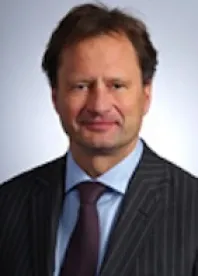Overview
The European Commission’s Alternative Investment Fund Managers Directive (AIFMD), which went into effect on July 22, 2013, was designed to establish a unified framework throughout the EU for regulating previously unregulated Alternative Investment Funds (Funds).
The AIFMD applies to: (1) managers that are themselves established in the EU; (2) managers that are not established in an EU country, but that manage and market Funds established in the EU; or (3) non‐EU managers that market Funds that are not established in an EU jurisdiction. Thus, the AIFMD may be broadly applicable to managers and funds within and without the EU.
As is the case with any EU directive, EU member states (Member States) must transpose the AIFMD into their national laws for it to be enforceable on individuals. As the AIFMD represents the minimum EU regulatory requirements, Member States have significant flexibility in designing a regulatory framework for implementing the AIFMD.
Prior to the AIFMD’s implementation, shares in funds were placed exclusively through private placement. The AIFMD’s provisions will eventually phase out private placement, however, the AIFMD’s full regime will be implemented gradually. Member States have the option of maintaining a private placement regime for non‐EU Alternate Investment Fund Managers (Managers) for several more years.
Although July 22, 2013 marked the transposition deadline, by that date only a handful of member states had implemented their national AIFMD statues. Moreover, of those that met the July 22nd deadline, most did not have the full AIFMD mechanisms in place. In particular, few, if any, member states had worked out the full notice, and regulatory regime applicable to non‐EU managers continuing to use the Member States’ available private placement regimes. Thus, the last few months since July 22nd have seen member states’ piecemeal implementation of the appropriate AIFMD registration and notice requirements.
After describing the AIFMD’s main regulatory framework, the following review will address the recent developments in the Member States’ transposition of the AIFMD private placement requirements.
Regulatory Target—AIF Managers
The AIFMD seeks to regulate a set of previously unregulated funds, namely, “all collective investment undertakings that are not regulated under the Undertakings for Collective Investment in Transferable Securities (UCITS) Directive.” These include hedge funds, private equity funds, commodity funds, and real estate funds, among others.
Rather than directly regulating funds, however, the AIFMD regulates managers—that is, entities providing either risk or portfolio management to a fund. According to the AIFMD, each fund may only have a single entity as its manager.
Under the AIFMD, the manager for regulatory purposes may not be the entity colloquially considered the manager. A manager that is a shell entity (which the AIFMD terms a letter‐box entity) is not considered the true manager for regulatory purposes.
Broadly speaking, a manager that does not retain the core management functions of risk management, investment decision‐making, or investment management is deemed by the AIFMD to be a shell entity. For regulatory purposes, this shell manager will be looked through to the true manager that retains the core management functions.
Exemption—Small Managers
Pursuant to the AIFMD, whereas managers with assets under management (AUM) of more than € 100 million (if leveraged), or € 500 million (if unleveraged) are subject to the AIFMD’s full regulatory regime, managers with AUM less than € 100 million (if leveraged) or € 500 million (if unleveraged) are subject to a lighter AIFMD regulatory regime.
For regulatory purposes, a manager’s AUM is the total amount that the manager manages through all of its managed funds, including assets that the manager both directly and indirectly controls.
Marketing—Definition
As previously discussed, the AIFMD applies to non‐EU managers marketing non‐EU funds in one or more Member States.
The AIFMD defines marketing as “a direct or indirect offering or placement at the initiative of the AIFM or on behalf of the AIFM of units or shares of an AIF it manages to or with investors domiciled or with a registered office in the Union.” This marketing definition does not include reverse solicitation, where the investor initiates the investment, and the investment is not at the manager’s direct or indirect initiative.
Thus, for example, if an EU investor initiated an investment in a U.S. fund, managed by a U.S. manager, the U.S. manager and fund would remain unaffected by the AIFMD. Only if the U.S. manager solicited investment in the U.S. fund in a Member State would the AIFMD apply.
Regulating Non‐EU Managers—National Private Placement Regimes
The AIFMD is designed to phase out national private placement regimes, creating a unified regulatory regime throughout the EU. However, the AIFMD is scheduled to come into force in stages.
Between July 22, 2013, and 2018 (at the earliest), Member States may continue to permit non‐EU managers to market their non‐EU funds in Member States subject to the applicable national private placement regimes. However, Member States may abolish their national private placement regimes prior to the AIFMD’s 2018 date. (Indeed, Germany, with limited exception, has already abolished its private placement regime.)
Regulating Non‐EU Managers—Additional AIFMD Requirements
As explained, through 2018, the AIFMD will largely permit non‐EU managers to market non‐EU funds subject to the private placement regime in the relevant Member State (if available).
However, the AIFMD does include three additional requirements for a non‐EU manager to be able to take advantage of a Member State’s private placement regime. These include, specific disclosure and reporting requirements, cooperation agreements, and exclusion of managers and funds established in certain countries. Each of these will be discussed in turn.
Applicable AIFMD Reporting Requirements
By its terms, the AIFMD will require even non‐EU managers marketing non‐EU funds pursuant to national private placement regimes to comply with certain AIFMD provisions concerning annual reports, disclosures to investors, periodic reporting to regulators, and acquisition of control over EU companies.
Cooperation Agreements
For non‐EU managers to be able to market their non‐EU funds in a Member State, the AIFMD requires that there be cooperation agreements in place between the regulator in the relevant Member State, and those in the home jurisdictions of the non‐EU manager, and the non‐EU fund.
ESMA has negotiated memoranda of understanding (MOU) with 34 regulators in a variety of jurisdictions. These MOUs, however, are insufficient to permit non‐EU managers to market their non‐EU funds in any EU jurisdiction. Rather, the Member State must sign a separate cooperation agreement with the regulators in the non‐EU manager’s and non‐EU fund’s home jurisdictions.
Thus, for example, for a U.S. manager to be able to market its Jersey‐based fund in the UK, the UK’s Financial Conduct Authority must have a cooperation agreement with the United States’ regulator, as well as the Jersey regulator.
The Member States are signing these cooperation agreements at different rates. For example, the Netherlands, the UK, and Luxembourg have signed cooperation agreements with all 34 countries with which ESMA negotiated MOUs. Whereas Germany has signed cooperation agreements with only half of these jurisdictions, and only plans to sign cooperation agreements with the countries doing business with Germany.
Exclusion of Non‐Cooperative Country or Territory
Finally, pursuant to the AIFMD, to be able to market based on a Member State’s private placement regime, neither the non‐EU manager’s nor the non‐EU fund’s home jurisdiction may be considered a “Non‐Cooperative Country or Territory,” by the Financial Action Task Force on anti‐money laundering, and terrorist financing.
Recent Developments—The Netherlands
Member States that have preserved their private placement regimes through 2018, have, since July 22, 2013, begun to issue AIFMD‐compliant procedures for managers’ licensing or registration. The Netherlands is among these Member States.
At present, the Netherlands Authority for Financial Markets (AFM) has issues two separate regimes for managers, including: (1) a licensing regime for managers with AUM over the € 100 million / € 500 million threshold; and (2) a registration regime for managers with AUM below the € 100 million / € 500 million threshold.
For managers with AUM over the € 100 million / € 500 million threshold, the AFM has issues a full licensing regime which takes 13 weeks to process. To obtain a license, the manager must submit extensive information regarding the manager, and its funds, including: the investment plans; control structure; solvency and liquidity information; and conflict of interest policies, among others.
If, however, the manager’s AUM are under the € 100 million / € 500 million threshold, and the fund is only being marketed to professional investors, then the notification procedure is free, and consists of sending the AFM general information regarding the manager and the relevant fund. The registration information includes: the manager’s and the fund’s AUM; a description of the fund; the fund’s leverage; and the means of ensuring that the fund is marketed only to professional investors.
The AFM has issued applicable registration forms for Dutch managers, and for managers from “Designated Third Countries,” which include Switzerland, the United States, and Australia. Registration of managers from other non‐EU countries is effectuated by sending the required registration information to the AFM via email.
Forecast
If the last few months since the AIFMD’s 22 July implementation date are in any way indicative of the future, the AIFMD will eventually be fully implemented throughout the EU. However, because Member States seem to be implementing their AIFMD regimes piecemeal, it may be some time before there is any semblance of EU‐wide AIFMD order.
Ilana Haramati also contributed to this article.



 />i
/>i
